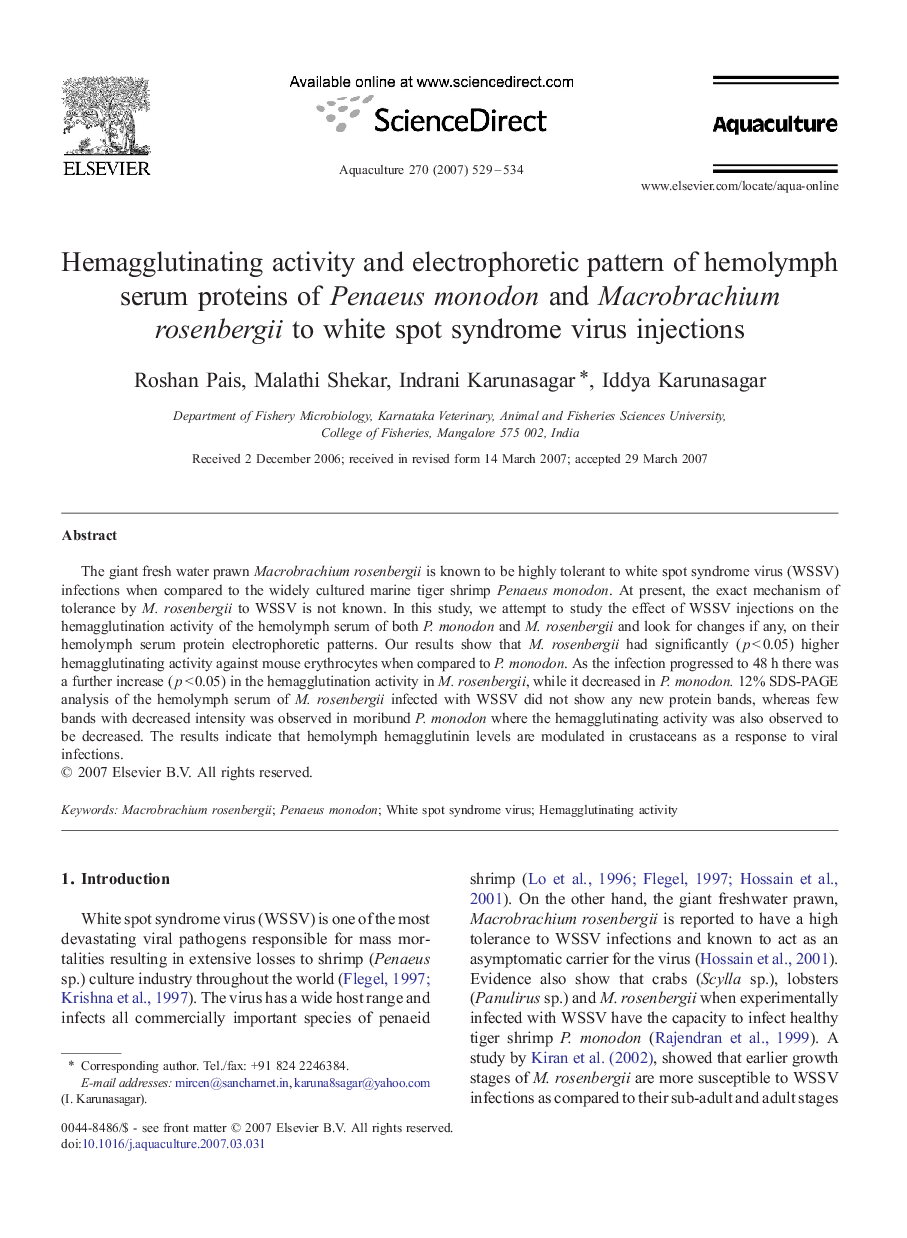| Article ID | Journal | Published Year | Pages | File Type |
|---|---|---|---|---|
| 2425078 | Aquaculture | 2007 | 6 Pages |
The giant fresh water prawn Macrobrachium rosenbergii is known to be highly tolerant to white spot syndrome virus (WSSV) infections when compared to the widely cultured marine tiger shrimp Penaeus monodon. At present, the exact mechanism of tolerance by M. rosenbergii to WSSV is not known. In this study, we attempt to study the effect of WSSV injections on the hemagglutination activity of the hemolymph serum of both P. monodon and M. rosenbergii and look for changes if any, on their hemolymph serum protein electrophoretic patterns. Our results show that M. rosenbergii had significantly (p < 0.05) higher hemagglutinating activity against mouse erythrocytes when compared to P. monodon. As the infection progressed to 48 h there was a further increase (p < 0.05) in the hemagglutination activity in M. rosenbergii, while it decreased in P. monodon. 12% SDS-PAGE analysis of the hemolymph serum of M. rosenbergii infected with WSSV did not show any new protein bands, whereas few bands with decreased intensity was observed in moribund P. monodon where the hemagglutinating activity was also observed to be decreased. The results indicate that hemolymph hemagglutinin levels are modulated in crustaceans as a response to viral infections.
